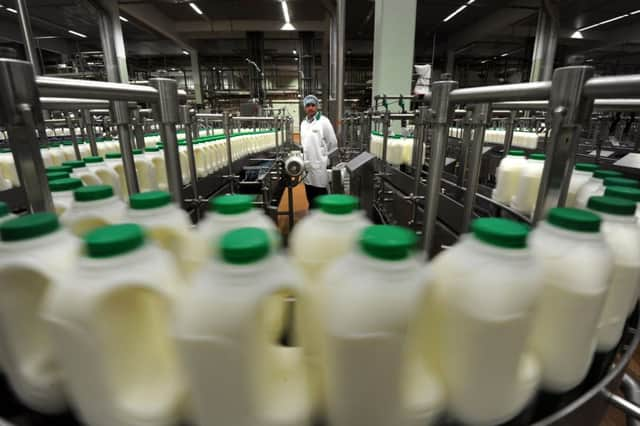Why this ‘plastic-pact’ is a game changer for the industry - Peter Maddox


OSO Polymers in Stourton is a new business and is almost wholly Chinese owned. In November, it announced an injection of £3m to expand its current operation of two production lines to eight within two years and create potentially up to 300 new jobs.
Like hundreds of other similar businesses, OSO Polymers takes packaging waste and processes it into the pellets used as a raw material for new packaging. But what is intriguing about the Chinese involvement and investment is that it indicates a remarkable turnaround in a significant global market for two reasons.
Advertisement
Hide AdAdvertisement
Hide AdOn the one hand, this seems an excellent affirmation of the growing demand for recycled plastic, often from manufacturers who up to now were keen to use only ‘virgin’ plastic in their products or packaging. We’ve seen an increasing number of major brands announce challenging targets in the coming five to ten years to drive recycled plastic rates.
In Yorkshire, the dairy giant Arla Foods, which produces billions of food products each year, has committed to continuously reduce the environmental impact of our packaging.
Arla is one of the around 80 business members of The UK Plastics Pact that is overseen by WRAP and brings together the entire plastics value chain. The Pact commits companies to transform the way they make, use and dispose of plastic packaging to keep it in the economy and out of the environment.
By 2025, members pledge to remove all problematic or unnecessary single-use plastic packaging; all plastic packaging must be reusable, recyclable or compostable; 70 per cent of plastic packaging must be recycled or composted; plastic packaging must contain 30 per cent recycled content An approach such as this will surely drive demand for greater processing in the UK.
Advertisement
Hide AdAdvertisement
Hide AdThe second interesting aspect of the investment is that it has come from China. For many years, plastic waste collected and recycled from our bins would be shipped to China. Not any more. New domestic regulations mean Chinese manufacturers no longer accept large consignments of unprocessed materials from the UK and other developed countries.
A flurry of recycling plants popped up in neighbouring Asian countries, such as Vietnam and Indonesia, to process British exports into pellets that could be sent on to China. However, these countries are also clamping down on unprocessed consignments.
At the moment, the UK doesn’t have enough domestic recycling plants to handle all of our own waste, which is why we send a proportion overseas. However, we’re starting to build more plants here, and investment from China could be part of the solution.
OSO Polymers appears to be an early adopter of this new dynamic in the global recycling marketplace. It says it has been a conscious decision to bring an operation that used to happen in China into the UK.
Advertisement
Hide AdAdvertisement
Hide AdThis opportunity exists for all domestic processors, particularly those dealing with non-consumer packaging waste. Unwanted materials from manufacturers typically have less contamination than that produced by consumers.
The manufacturing sector in the Yorkshire region offers huge potential for sustainable partnerships that can take packaging waste, process it nearby and find valuable markets either at home or in China.
If Chinese businesses are investing in a supply chain that includes a stronger recycled plastic reprocessing sector in the UK, I’m all in favour. If it means the UK is creating quality raw materials from packaging waste and exporting them around the world, then that is a real bonus.
Peter Maddox is the director UK of Wrap, the sustainability charity